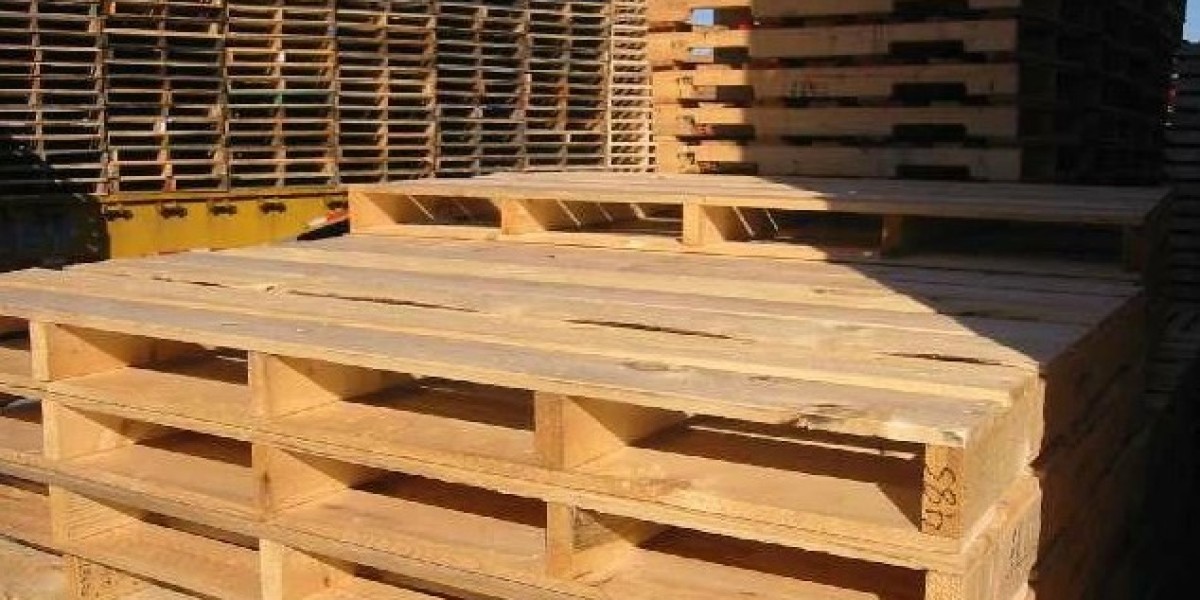As one of the largest and most influential retailers globally, Costco constantly seeks ways to enhance efficiency, streamline operations, and improve product handling. A key initiative in recent years has been its adoption of the block pallet system, a shift impacting suppliers, retailers, and logistic operations worldwide. Here, we’ll break down the essentials of the Costco block pallet Oakland mandate, why it’s implemented, and how businesses can adapt to stay competitive in the retail landscape.
What Is a Block Pallet?
A block pallet is a sturdy, durable pallet typically built with blocks or columns supporting the top and bottom decks rather than traditional stringers (long, horizontal pieces of wood). This design improves load-bearing capacity, allowing forklifts to access the pallet from four sides, unlike the standard two-way entry on stringer pallets.
The block pallet’s enhanced durability makes it suitable for heavier loads and continuous reuse, essential for high-volume retailers like Costco. Generally made from hardwood, high-quality plastic, or other strong materials, these pallets are ideal for environments demanding robust equipment to move substantial quantities of merchandise.
Why Did Costco Mandate Block Pallets?
Efficiency in Supply Chain Operations
Block pallets streamline warehouse handling due to their four-way entry design, which improves forklift maneuverability and reduces the time needed to load or unload goods. Given Costco's fast-paced environment, maximizing handling efficiency at each distribution center is crucial.Improved Product Safety and Quality
Block pallets are stronger and more resilient than stringer pallets, which helps to minimize damages during transport. This sturdier design reduces product shifting, ensuring items stay secure and safe, enhancing overall product quality and lowering breakage costs.Sustainability Goals
Durability is key to Costco’s environmental commitments. With block pallets, their ability to withstand repeated use reduces the need for new pallet production, supporting sustainable supply chain practices. Many block pallets are also recyclable, further aligning with sustainability objectives.
How the Block Pallet Mandate Impacts Suppliers
The block pallet mandate has implications for businesses supplying goods to Costco, requiring adjustments to their logistics operations and cost structures.
Transition Costs
Suppliers accustomed to stringer pallets may need to invest in block pallets, incurring an upfront cost. This switch may also involve upgrading existing equipment to handle the new pallet dimensions and weight, potentially increasing short-term expenses.Enhanced Product Handling
Block pallets improve warehouse efficiencies, enabling suppliers to load and unload faster. While the initial investment is significant, many suppliers find it beneficial for long-term cost savings and operational ease, especially when adapting to Costco’s supply chain standards.Sustainability Compliance
For suppliers aiming to meet sustainability benchmarks, block pallets offer a viable solution. Investing in pallets made from recycled materials or reusable plastic aligns with Costco’s environmental standards, which is advantageous for suppliers prioritizing green practices.
What Suppliers Need to Do to Comply
For suppliers entering the Costco ecosystem or adapting to the new requirements, the following steps will help ensure compliance with the block pallet mandate:
Assess Current Pallet Inventory
Start by evaluating your current pallet stock and assessing the cost and logistics of transitioning to block pallets. Understanding whether wood or plastic block pallets are more suitable for your product type is essential.Invest in Necessary Equipment
Evaluate your facility’s existing forklifts, pallet jacks, and storage configurations to determine if upgrades are needed. Certain pallet-handling equipment may be incompatible with block pallets, requiring recalibration or replacement.Work with a Reliable Block Pallet Supplier
Partner with a block pallet manufacturer or rental company that meets Costco’s specifications. Choosing a reliable supplier who can consistently provide pallets with minimal downtime is crucial for maintaining supply chain efficiency.Embrace a Circular Economy Approach
Consider participating in a pallet recycling or refurbishment program. This is both cost-effective and aligns with sustainability objectives, allowing businesses to fulfill the mandate without excessive waste.
Benefits for Retailers and Consumers
The adoption of block pallets impacts Costco's operations and benefits consumers in several ways:
- Better Product Availability: Efficient supply chain management ensures that products are readily available on Costco shelves.
- Improved Product Quality: With reduced chances of damage, products reach consumers in optimal condition, boosting customer satisfaction.
- Cost Savings: As Costco saves on handling costs, some of these efficiencies translate to pricing, allowing the retailer to maintain competitive pricing for shoppers.
Challenges and Solutions
While beneficial, the transition to block pallets also brings unique challenges. Some common obstacles include:
- Increased Costs: Small and mid-sized suppliers may face financial strains due to the high initial investment. However, long-term rental agreements or pallet pooling programs can mitigate some costs.
- Warehouse Compatibility Issues: Facilities designed for stringer pallets may need reconfiguration, which can be costly. Partnering with logistics consultants can help optimize this transition.
- Training Needs: Employees accustomed to handling traditional pallets may require training on how to operate new equipment, especially when using heavier block pallets. Providing hands-on sessions or quick training videos can streamline this learning curve.
Looking Forward: The Future of Block Pallets in Retail
As other large retailers observe the success of Costco’s block pallet mandate, we may see a broader industry shift toward this pallet design. As sustainability and supply chain efficiency continue to take precedence in retail, adopting durable, four-way access pallets like block pallets will likely gain traction among major retailers worldwide.
For suppliers, adapting to these new standards isn’t just a requirement but an opportunity to modernize operations, streamline logistics, and meet increasingly popular sustainability goals. By staying proactive and ready to embrace change, businesses can navigate the Costco block pallet mandate successfully, positioning themselves for long-term growth in the evolving retail landscape.
The Costco block pallet mandate exemplifies how small operational changes can ripple through an industry, driving efficiency and sustainability across the board. As the retail world evolves, it’s clear that initiatives like this will be pivotal in shaping the future of global supply chains.










